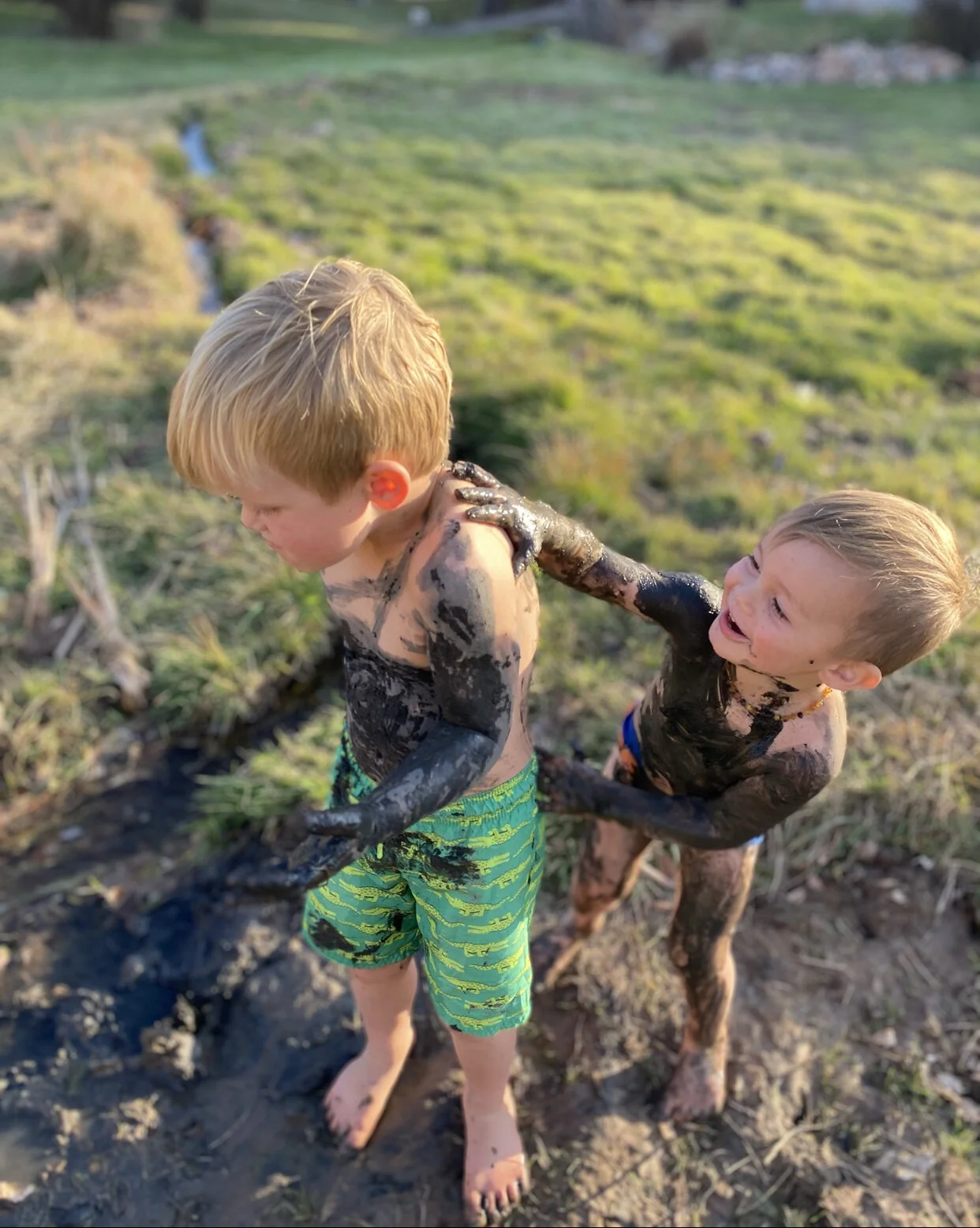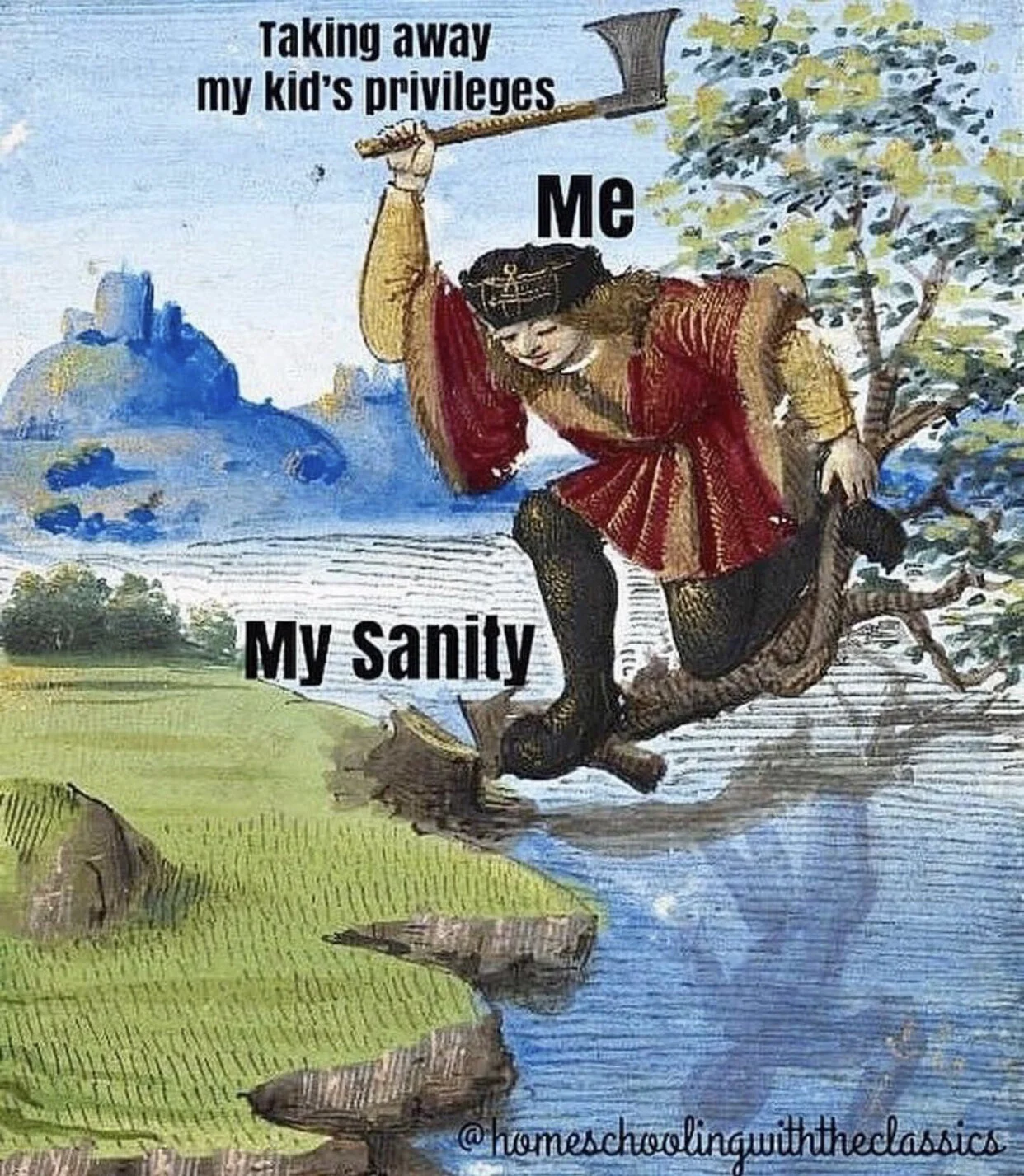The Screen Time/ Anhedonia Connection.
Have you ever heard the term Anhedonia?
Anhedonia is the inability to feel pleasure, and I first came across this frightening term when I was researching the effects of screen time on children.
I have long known that chemicals, dyes, additives and JUNK in normal food could cause behavioral issues. I have also known a healthy diet and supplementation can diminish symptoms from ADD, and decrease violence/aggression while improving brain function. And while I had always limited TV time, I truly had no idea how the long-term use of video games/screen time would alter the way the normal brain functions in such a drastic way, until I witnessed it first hand in one of my children!
Raising screen free kids
“Research shows that children's brains on screen time look a lot like children's brains on cocaine, and scientists are just starting to discover what that means.”
Our children are often times our best teachers, and many times we learn hard lessons by screwing up. Most of you know our story of vaccine injury with our oldest son, and how that one event dramatically changed our lives forever and became one of my greatest lessons.
This is a bit of a different story, but still one filled with regret and consequences that we still deal with today!
When my sweet little #4 babe was only 2 1/2 years old, we packed up our family and had a pretty big move, several hours away . Just 6 weeks after the birth of baby #5, and a more challenging time because of my surprise c-section after my previous natural/home births. (Side note- that c-section also ended up being a beautiful lesson in life that brought me a lot of learning as I healed from the side effects of surgery! I was also able to have 2 more home births after as well, but those are all stories for another day....)
Because this was such a big move, and I was slower than normal while also being much busier than normal, our little 2 1/2 year old slipped through the cracks. Up to this point, we had very strict screen times for our kids, but honestly didn’t even know much about the dangers of screens as we only had Kindles for our oldest two. During the long drives back and forth and the moving chores, we kept our wild toddler busy by letting her play games on our phones. Over the next few months, she very slowly played more and more, no one really realizing what was going on. It wasn’t until we took a trip at Christmas that we realized how bad she was addicted. We were staying at the Gaylord Texan, and took all the kids to see ICE and slide on the indoor sleds and play snow games etc. Gaylord is MAGICAL during Christmas, and the kids were all in heaven. Except Caiya, our little one who was now almost 3. She was unimpressed and only wanted a device to play games in her stroller, and would wildly throw a fit when we told her no. She literally could not enjoy ANYTHING else. It was horrifying as I had never seen anything like this before!
I started researching that night and was absolutely SHOCKED by all the information I found!
The younger the child using screens, many times, the more detrimental and life-long the damage can be to their developing brains.
When a child plays a computer game, (or a teen posts to social media!) each time they kill someone or blow something up, advance to the next level, or get a like on a recent post, the brain responds chemically. This intense stimulation releases high amounts of dopamine in response to the online “win”. This happened in the brain’s reward center, and dopamine is the brain’s natural pleasure chemical. This makes our kids feel GOOD, and when you combine the winning and excitement, the brain will produce two other hormone- norepinephrine and epinephrine—to wake itself up with a boost of heightened awareness. And to quote Dr. Joe Dispenza “this chemical cocktail is the perfect mix for problems in normal brain function.”
The occasional game is no big deal, but when your child does this daily, or several hours a day, it can quickly have serious consequences. As the pleasure center is continuously stimulated at such high levels, it becomes desensitized and more and more of these strong chemicals are released in their brains. This causes overstimulation in the pleasure centers as the reward system becomes desensitized and the receptor sites close down, and has to recalibrate to a higher level. As you’re child continues to over-activate these receptors, they eventually become numb and require more and more substantial hits.
The side-effect
The brain needs unrealistic highs to feel happy and satiated. In the absence of such high-level stimulation, the mind turns off! This leads to Anhedonia, the inability to feel pleasure. Not only can the child not find pleasure in day to day life, but this is also one of the causes of learning disabilities. Nothing in life is as exciting as the “hits” they are getting from the virtual world. This heightened state makes it harder for children to retain information, perform in school, interact socially, relate to others, self-soothe and regulate emotions.
Here’s something else crazy— “Getting in trouble causes high adrenal activity and, UNCONSCIOUSLY , the child is making the brain turn on again to provoke similar chemical releases as gaming provides.”
Your child doesn’t even want to be in trouble, but is ADDICTED to the chemical releases in their brains! If you cannot help balance your child’s brain, it leaves them much more risk for heightened stimulation: drugs, pornography, gambling, excess shopping, over-eating…all because the brain’s satiation center may never be fulfilled.
Ready for the good news?
YOU CAN CHANGE IT.
We changed that day at Gaylord! We stopped cold turkey. Not gonna lie, we had a few BRUTAL hours with that fierce little gal, but it got better.
It only took her a day or so and she was up and playing and enjoying life again! Sadly, I will admit that she was a bit predisposed to being addicted to devices for YEARS. She loved them and craved them more than any of our other kids. She asked to play on them long after we stopped! This is because we allowed it when she was so young, and the younger they are, the more dangerous.
I challenge you as a parent to take a look at your own behavior before addressing your child’s. Is it easy for you to go without your phone? Is it easy to set it down and walk away? So many adults are addicted as well, and if you want to create lasting change with your kids, it starts with YOU.
Get outside! Being in nature is one the number one tips to breaking the hold that electronics have on your family. Swimming, hiking, fishing, gardening, playing games and sports.... reconnect with nature in whatever way you can.
If they’re under a certain age, I would NEVER allow it, EVER. The stakes are too high! Their brains are not worth the few minutes of silence it gives you! The good news is that they get over it quickly if they’re young, because they truly love and prefer to color, draw, read, play puzzles, explore, build forts, dig in the yard, play with the dog, learn to ride a bike, play in the mud….just get them out DOING!
As they get older, I know it’s not possible to live screen free. So as a teen, some great tips are making chores and education a priority FIRST. Only after they finish these things will they be allowed limited access. This way they have a sense of accomplishment first, which will help keep their brain chemicals balanced. Genuine self worth is HUGE, so make sure your kids are doing things they feel good about.
my biggest piece of advice for older kids and teens is to show them the research! They are so smart and usually rise to the occasion. I don’t think anyone wants to be addicted to anything, so oftentimes explaining WHY and then helping them transition to better habits is going to help them keep them long-term and not be resentful. Forcing without expanding will just breed anger and frustration. Kids are capable of so much more than we give them credit for, and I think most of the time we just don’t give them the opportunity!
Make certain rules and keep them. No phones at the table is a must. Eating dinner together, device-free is a wonderful way to connect with your kids. It makes me so sad to see so many families with zoned-out kids in restaurants.
I don’t say that in judgment!! I have been there! I didn’t realize the damage I was doing, but when I learned better, I chose to do better.
Breaking that addiction is HARD. But it is worth it. You will LOVE the kid you have when I the detox is over!
And full disclosure:
I don’t think I’ll ever live device-free, nor would I want to! I love that I have access to unlimited knowledge and learning and wisdom! I love that my teens can learn so much about so many incredible subjects! We just have to learn to create balance in the process.
Here are a few great articles and resources with studies and sources on each
5 Reasons To Throw that Tablet Out the Window:
Screen Time Recommendations for Kids by Age
Screen-Free Parenting



